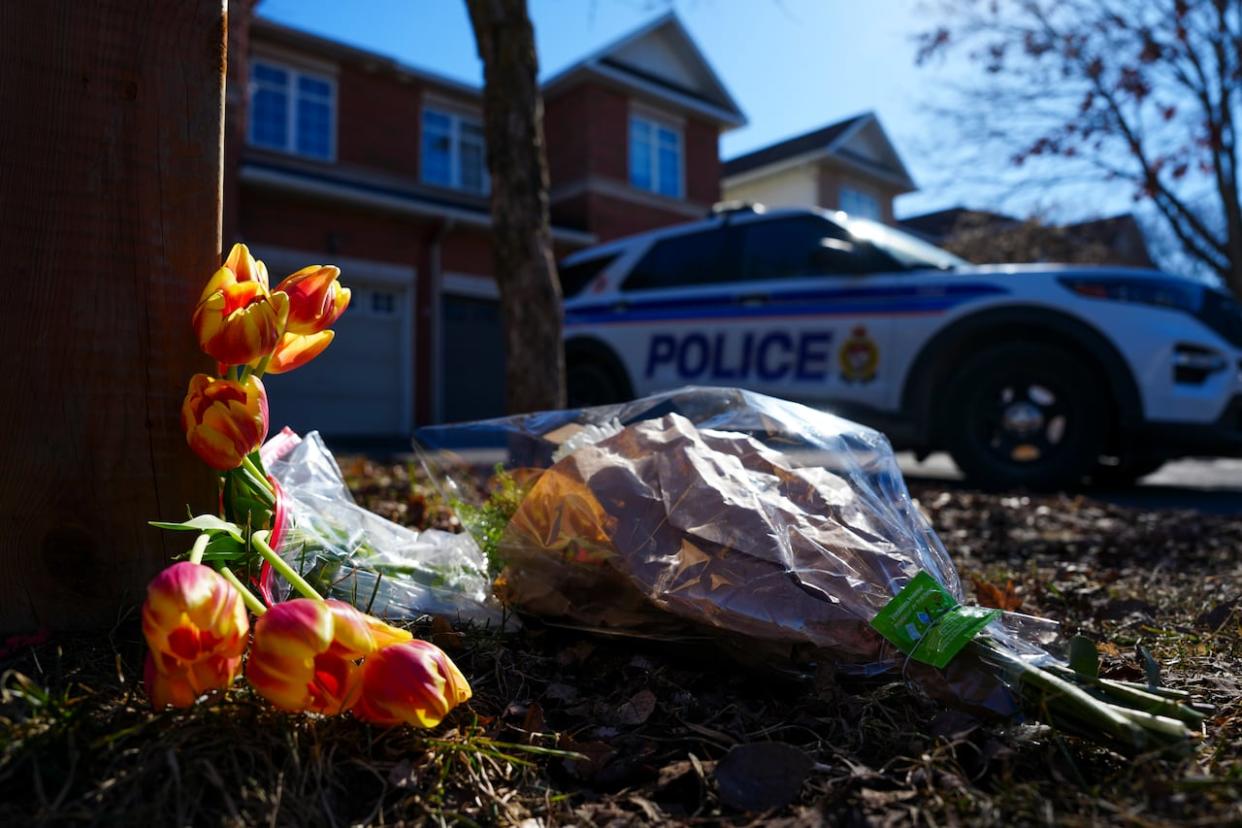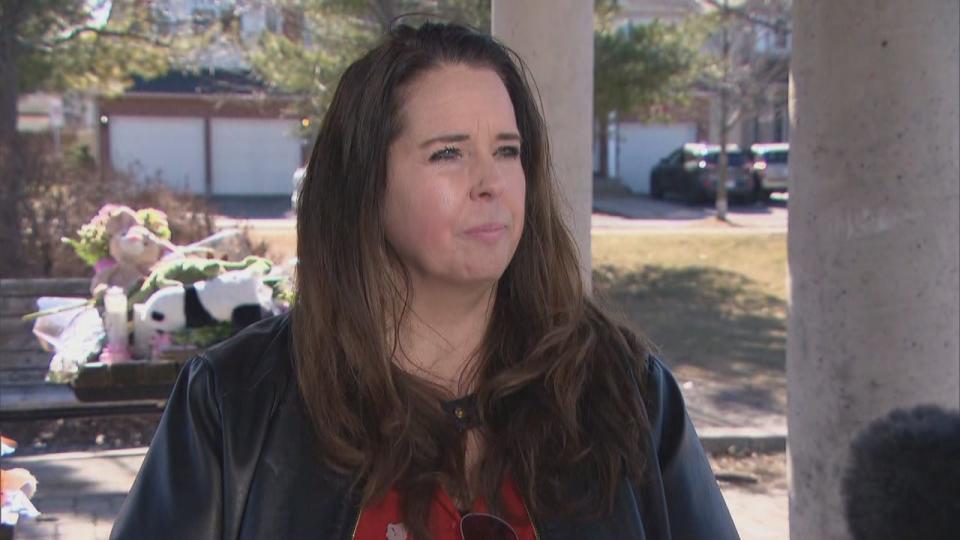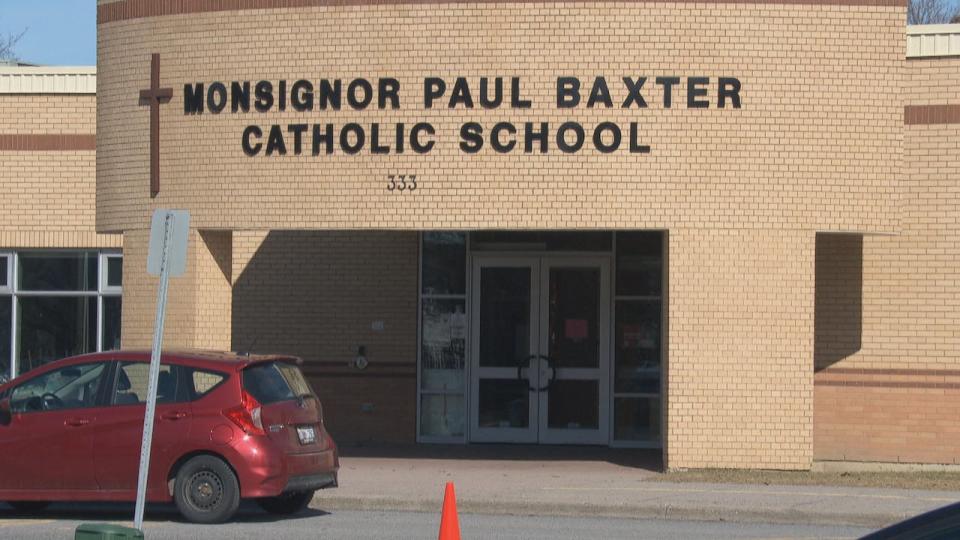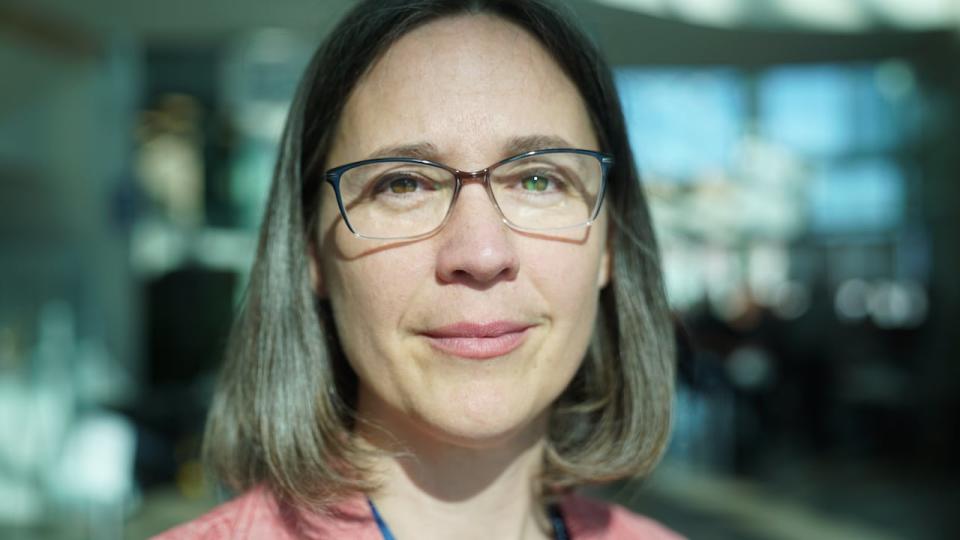Wider impact of Ottawa mass killings felt by first responders, teachers — and kids

The gut-punch of the gruesome mass killings that left five family members and one acquaintance dead Wednesday is being felt widely in Ottawa — from the former teachers and classmates of two of the child victims to the police officers who rushed to the scene.
"There's things that were seen by some of our members they'll never be able to erase," said Matthew Cox, the president of the Ottawa Police Association.
"It will always be in their minds."
Among the dead were 35-year-old Darshani Ekanayake and her four children, the youngest only two-and-a-half months old. The sole survivor of the attack was her husband and the kids' father, who was taken to hospital with serious but not life-threatening injures.
A 19-year-old international student, who was staying with the family, is now facing first-degree murder charges.
Some of the attending police officers have children of their own, which made responding to the call "even more difficult," Cox said.

Cynthia Steeves, the president of a union local that represents staff at the school where two of the child victims attended classes, said workers there were facing 'conversations with the kids that are coming into the classroom and wondering where their classmate is.' (CBC)
His own six-year-old kid asked him what happened after hearing about the killings on the news, he said.
"I did have to explain to my little guy... the police were able to arrest this person and unfortunately, there were some lives that were lost," Cox said.
"He just kept asking more and more questions because he couldn't understand why it happened or why somebody would do that."
'Walking the hallways is hard'
Teachers and other staff at Monsignor Paul Baxter School, which has students from junior kindergarten to Grade 6, have also been tackling tough questions after the killings.
Two of Ekanayake's children went to school there: one in junior kindergarten, the other in Grade 2, according to the Ottawa Catholic School Board.
The school did not break the news to students on Thursday given the slow trickle of details that day, said Dr. Richard Bolduc, a psychologist and the board's mental health and well-being lead.

Students at Monsignor Paul Baxter Catholic School are now entering March Break. The school board has provided parents with results to help during the break. (CBC)
"We're always very sensitive and aware and careful not to be putting out information we don't know," he said, adding that the school remained open in order to offer "a form of stability" even if "these were not normal days."
Cynthia Steeves, the president of CUPE Local 2357, which represents support staff at the school, echoed that feeling.
"Walking the hallways [was] hard," she said of staff. "Being in the classroom this morning that the children would have been in, it's difficult for them."

Lorraine Downey, the peer support coordinator for the Ottawa Paramedic Service, said calls that involve children 'do tend to hit home.' (Matthew Kupfer/CBC)
"Having those conversations with the kids that are coming into the classroom and wondering where their classmate is" was also challenging, Steeves added.
Crisis intervention clinicians from the board were on hand Thursday and Friday to help shoulder those questions, while a followup letter to parents provided advice and a list of resources as students entered March Break on Saturday.
But "this is not at all something that you would think, at the end of the day, 'it's over,'" Dr. Bolduc said. "It will stay. It'll persist."
Although the school was home to two of the victims, "it's really the whole community that's impacted," he added.
The calls that 'hit home'
The 24/7 crisis line maintained by the Distress Centre of Ottawa and Region is among the resources the board shared with parents.
Kathyrn Leroux, a distress centre spokesperson, said the line has heard from people both connected to the killings and not.
Besides the high death toll, the killings have been "compounded because of the children, because of the age of the children... and is so triggering for so many people," she said.
Lorraine Downey, the peer support co-ordinator for the Ottawa Paramedic Service and a paramedic in the city for almost 18 years, said many people start in the profession without kids.
"Then as we move through our career, a lot of us get married and have kids and that tends to change sometimes the impact that calls have on us," she said. "Calls that involve children do tend to hit home."
At the same time, "the calls that might affect me may not affect my partner just because [of] different life stages," Downey said.
Downey is now a grandparent and recalls talking to her kids about the educational parts of the job — while shielding them from the more traumatic parts.
"That's sometimes easier said than done," she said.
'Have to take the right balance'
Like Cox, Sgt. Admir Minarolli was asked by his child — a teenager — about the events of Wednesday night.
Minarolli was one of the first people to go to the townhouse and oversees junior officers on the force who were at the scene too, he said.
"I talked to her and tried to tell her the world is a large place," Minarolli said of his 14-year-old daughter.
"I don't want to necessarily shield her from what happens and deny, but at the same time I want her to get that perspective that sometimes bad things happens — even in a safe city like ours."
Officers are placing a heavy emphasis on healthier coping mechanisms than perhaps were practiced in the past, Minarolli said.
He himself likes to cycle and is out of town this weekend with his kids at a soccer tournament.
"I'm not gonna sit here and say, yeah, we're very stoic and we suck this up, right? We don't.
"But also we have to take the right balance not to be overwhelmed."


